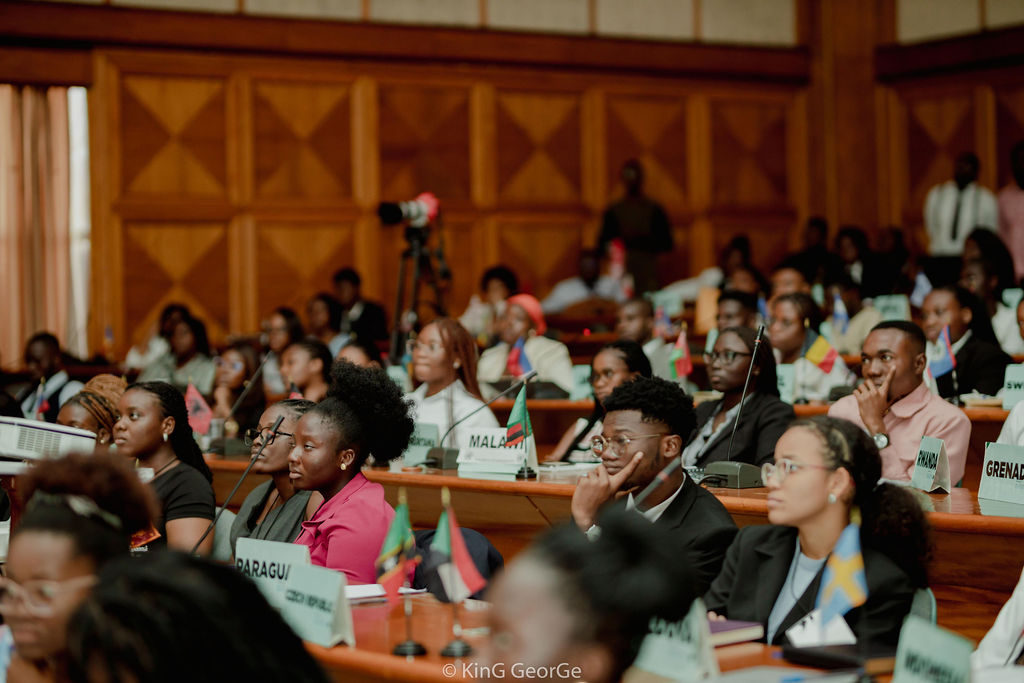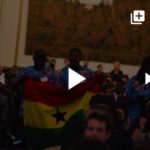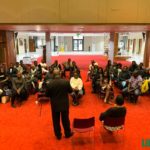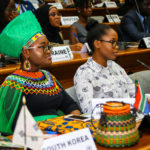Model United Nations
Our Conferences
Engaging in our Model United Nations conferences is like stepping into a world where students break free from traditional learning and dive deep into global issues. It’s an exciting opportunity where young minds can explore the complexities of international diplomacy and discourse. Imagine a platform where students become diplomats, ambassadors, and statesmen, navigating the intricate corridors of global affairs with intelligence and insight. That’s the essence of what our Model UN conferences offer—an immersive experience that surpasses the borders of conventional education.
Life-Link Model UN programmes have been endorsed by the United Nations office in Ghana, the Ministry of Foreign Affairs, and the Ministry of Communications as good avenues that provide an understanding of the work of the United Nations, build skills in diplomacy and provide preparation resources for delegates.
At the core of these conferences lies a commitment to active participation and scholarly discussion. Inspired by the pioneering efforts of Life-Link Friendship Schools Ghana and aligned with the objectives of Life-Link International, these conferences offer students a unique opportunity to refine their diplomatic skills while broadening their intellectual horizons. It does this by organising simulations, open discussions, school training, symposia, seminars, workshops, projects, and conferences such as the MUN Conference. It currently has a membership of over 5000+ in Ghana.
What do Model United Nations Conferences entail?
For conferences, delegates are assigned specific UN committees and asked to undertake intensive research concerning a particular global topic relevant to the UN Committee assigned. The topic is discussed in detail at the conference, putting together insightful solutions to address the problem/issue at hand in the form of a Draft Resolution. Throughout this conference, Delegates are required to exhibit exquisite skills in lobbying and negotiation to reach a global consensus.
Why should I be a Delegate?
At the end of this conference, well-deserving Delegates are acknowledged for their unwavering contribution towards international service. These Delegates then qualify to attend and participate on an international platform. MUN serves as the perfect foundation to sharpen one’s public speaking skills, research and writing skills, and policymaking drive. The procedure enlightens you on how to lobby and negotiate effectively as a Representative or Delegate in any committee or organisation. Students create for themselves a stronger and more influential network of friends at these conferences. Finally, it builds you up for any future career or aspiration by giving you the platform to explore your leadership potential.
LTMUN CONFERENCE
The Life-Link Tertiary Model United Nations (LTMUN) Conference is LifeLink Friendship Schools Ghana’s flagship annual event, welcoming 500+ delegates to the great cosmopolitan capital of Ghana, Accra, for an enriching three-day residential experience of intensive debate and exciting social events.
As we gear up for the 2024 conference, marking our prestigious 14th session, our preparations are in full swing. Each year, we engage approximately 50+ staff volunteers worldwide, meticulously coordinated by a dynamic student Secretariat hailing from esteemed universities across Ghana. This effort is overseen by a dedicated Board of Trustees and Directors.
Regardless of whether you’re a novice to the world of Model UN or a seasoned Delegate, we extend a warm invitation to you to join us at our next conference. Life-Link Tertiary Model United Nations (LTMUN) conferences foster personal growth and holistic development. Through dialogue with peers from diverse backgrounds, students create lifelong connections and cultivate an appreciation for the richness of human experience and the complexities of global interdependence. These conferences promote cultural exchange and mutual understanding, nurturing empathy, tolerance, and cross-cultural communication.
All individuals in Tertiary institutions, between the ages of 18 and 27, across the country are eligible to participate. Over the years, several Tertiary institutions, both local and international, have participated in our Tertiary Conference. As we officially open applications for this year’s conference, our team promises Delegates and Faculty Advisors the very best of this year’s LTMUN conference.
We are indeed very happy to host you this year!
JHS MODEL UN
JHSMUN is an annual non-residential conference held on UN Day (October 24th) every year. It hosts about 200 delegates from basic schools across Ghana and beyond. The conference aims to provide an accessible starting point and an introduction to MUN for Junior High School students. The conference has steadily grown to attract delegations from countless schools nationwide. It has remained a hub for growth and, for many, a first glimpse into the multilateral world we share through the United Nations.
Interesting topics are selected to be debated, and the rules used are easy and flexible for them to navigate through. This has served as an avenue to mould young minds and empower the next generation of Diplomats. Delegates also receive training to participate in the renowned Global Classrooms International Model UN (GCIMUN) Conference at the United Nations Headquarters, NYC. Life-Link Friendship Schools-Ghana continues to be actively involved in developing the Ghanaian youth in leadership, teamwork, and policymaking.
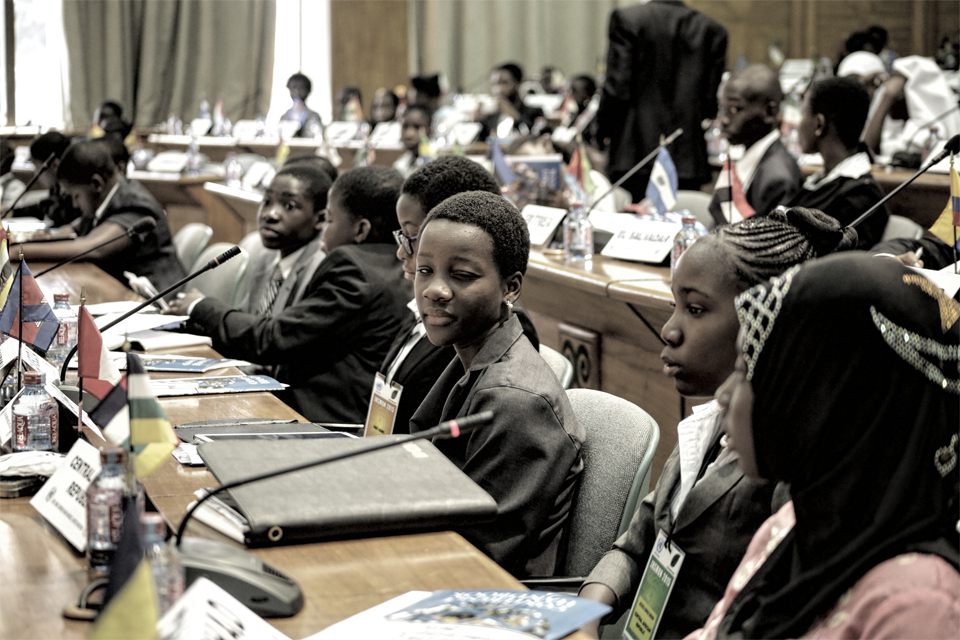
HSMUN CONFERENCE
This conference came to life after a group of Trustees, Secretariat members and seasoned participants all united behind a shared goal of increasing the social impact of the organisation.
The Lifelink High School Model United Nations (HSMUN) is the academically tagged second cycle edition of Lifelink Model UN. And just like any other MUN Conference, this is an educational extracurricular conference that allows Senior High School students to role-play actual UN delegates representing their respective member states at the UN. This conference spells out higher stakes, and as such, we hope to deliver an exhilarating Model UN experience.
International MUN Conferences
As an advocate for global engagement, Life-Link Friendship Schools Ghana actively participates in prestigious international MUN conferences around the globe. These conferences serve as invaluable opportunities for our members to network, exchange ideas, and gain insights into diverse perspectives on global issues. Through our participation, we contribute to the advancement of diplomacy and cross-cultural understanding on a global scale. Here are but a few of the conferences we participate in;
Harvard Model United Nations Conference (HNMUN)
HNMUN prides itself on upholding the highest standards of debate and delegate experience as the oldest, largest, and most prestigious Model UN conference of its kind. Since its first iteration under the HNMUN name in 1955, over 2000 attendees from across the globe have convened in Boston to discuss the world’s most pressing issues each year. Over the conference, delegates learn to negotiate with others of differing opinions and collaborate with like-minded representatives. Together they create comprehensive policy frameworks and innovative programs on a wide array of topics.
Life-Link Delegations have won over 15 awards in this conference, and over 10 teams have won over $15,000 in the Harvard Resolution Project Competition; a Social Venture Challenge.
Global Classrooms International Model United Nations Conference is an innovative educational programme that engages public middle school and high school students in an exploration of current world issues through interactive simulations and curricular materials. Global Classrooms cultivates literacy and leadership as students explore important topics such as peacekeeping, sustainable development and human rights During class simulations of the United Nations (UN) Security Council and other UN organs, students tackle global concerns including poverty, refugee protection and the environment as they role-play country, interest group, or nongovernmental organisation positions.
At the heart of UNA-USA’s Global Classrooms programme is Model United Nations, which for the past fifty years has been at the centre of a thriving community of young people interested in issues of international cooperation. Model UN allows students to step into the shoes of ambassadors from UN member states to debate international issues, prepare draft resolutions, negotiate with supporters and adversaries, resolve conflicts, and navigate the UN’s rules of procedure – all in the interest of mobilising “international cooperation” to solve global problems.
Ghana United Nations Youth Observer (GUNYO)
A Conference is organised to select the Ghana Youth Delegate, who will serve as an envoy for young people and represent the Ghanaian youth in the annual UN General Assembly. The Ghana United Nations Youth Observer (GUNYO) initiative seeks to develop the youth in areas of leadership and international diplomacy. The winner of this programme becomes part of the President’s envoy to the UN.
Upon the Observer’s arrival in the United Nations, he/she will build a pool of transnational networks that will foster simultaneous projects that will bring a great deal of change to the lives of humans and the world. UN Youth Observers from across the globe develop an action plan that they can individually practice and implement in their respective countries, check on the progress they have made, and help each other if need be.
Further, the Observer leverages the unique exposure offered to mobilise fellow young people into youth activism towards the attainment of the SDGs through inclusiveness and knowledge sharing. National issues that concern the youth will also have his/her contribution as the youth observer from the youth’s perspective.
FWWMUN CONFERENCE
Inspired by the 2012 Rio+20 Resolution, “The Future We Want”, the FWWMUN is committed to promoting a united international community, a better future, and a more sustainable world through the achievement of the Sustainable Development Goals (SDGs). FWWMUN has identified 10 goals from the 17 SDGs as key focus areas related to youth and education to guide the work of the organisation.
UN high-level officials have highlighted the important role Civil Society Organisations (CSOs) and Youth NGOs play in advocating for the SDGs in their countries. FWWMUN will work closely with organisations committed to bringing about the Future We Want to help all of us address this challenge together.
